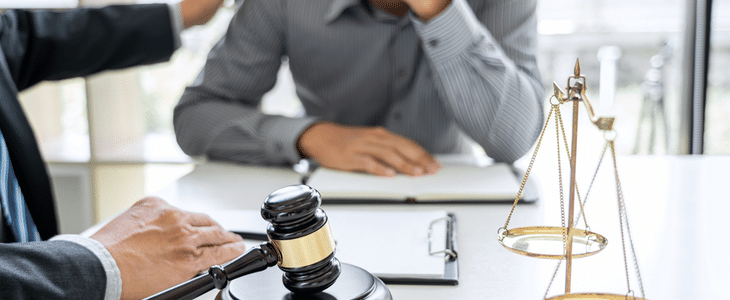If you have been charged with a crime, whether a misdemeanor or a felony, you may ask yourself do I need a criminal defense attorney? Whether or not you think that the situation is serious, there may be a lot more at risk than is immediately apparent, and you could find yourself looking back on this case year from now wishing that you had taken some different steps, if you don’t hire an experienced criminal attorney. When hiring a criminal defense lawyer, it is important to find the right one to handle your specific case. However, many wonder what a defense lawyer generally does for their clients. First of all, before choosing a lawyer, it is important to make sure they are licensed to practice law in Utah. Most lawyers specialize in a certain area of law and it is best to choose one that specializes in the practice area in which you require defense. When an attorney has specialized in a specific area of law for the majority of their time in practice, this typically signifies that they have a lot of experience relating to that subject. Their job is to represent their clients in court proceedings and they are supposed to do what they possibly can to get their clients the best outcome. It may not always work in their client’s favor, but attorneys are bound by a code of ethics under licensing laws and must provide their clients with fair and honest representation that works in the best interest of their clients. This article analysis some of the pros and cons in self-representation (pro se) versus hiring an experienced professional.
Advantages and Disadvantages of Pro Se Representation in a Criminal Matter
After being charged with a crime, a defendant will have several court proceedings they need to participate in to resolve the matter. The first thing a defendant should determine is their court representation strategy. Will they hire a private attorney, ask for a public defender, or represent themselves? If a criminal defendant chooses to represent themselves in court, this is referred to a pro se representation. Instead of relying on a lawyer for representation and legal advice, a pro se defendant researches and argues their own case in front of the judge and the jury. However, most lawyers and judges would agree that pro se representation is not always the best decision for a defendant facing criminal charges. This is because most people lack the skill and experience to put up the best defense. Many times when a defendant has self-representation, they will be convicted when a lawyer could help them get a not guilty verdict or a better deal. On the other hand, the right to pro se representation is guaranteed by the United States Constitution. So, if the defendant chooses to represent themselves in a criminal trial, the court must honor that decision. If a defendant chooses to represent themselves, they will need to take the following steps:- Tell the court that they wish to proceed with pro se representation;
- Establish competency to stand trial (criminal defendants that lack competency cannot represent themselves pro se);
- File the appropriate court paperwork; and
- Meet all court deadlines and case requirements.
Advantages of Pro Se Representation
While the disadvantages to pro se representation carry more weight in most instances, there may be some advantages depending on the defendant’s situation. These may include:- Familiarity: The majority of criminal defendants who choose to go pro se base their decision on a lack of trust in the judicial system. The defendants may believe that they know their cases best and are therefore in the best position to provide the greatest defense;
- Lower costs: Another common reason a defendant might choose pro se representation is the cost involved in hiring an attorney. If the defendant does not want the pro bono attorney, they will have to spare significant expense to hire a private attorney. However, even though pro se representation saves money it also provides a lesser chance of winning the case in most instances;
- Strategy Decisions: Having pro se representation means that the defendant solely calls the shots in their defense. This eliminates strategy disagreements between an attorney and client and the defendant feeling pressured to proceed with their case in a certain way. However, pro se defendants will still need to learn and follow the court’s rules; and
- Legal Experience: If the defendant is an attorney or has work experience in a legal setting, they may already be familiar with the judicial system and equipped with the tools needed to effectively argue their case.
Disadvantages of Pro Se Representation
Overall, pro se defendants have a lesser chance of winning their case than if they were represented by an attorney. Before making a representation decision, criminal defendants should consider the following disadvantages of proceeding in a pro se fashion:- Lack of Training and Knowledge: Perhaps the greatest disadvantage of pro se representation is that most defendants are not adequately trained in the law to represent themselves. Most criminal defendants have not gone to law school or received any legal training. As such, they will lack the knowledge of how to argue a case and be unfamiliar with common criminal procedure requirements that courts impose;
- Inferior Argument Skills: Although a defendant might have some knowledge of the law, knowledge alone is not enough to win a case and persuade the judge or jury that they are not guilty. Again, the average person will usually find it difficult to argue if they lack training in communication and argumentation skills. Language barriers can further complicate these situations;
- Bias: Pro se defendants will generally have inherent bias because they cannot look at the case from the other party’s position. On the other hand, lawyers are trained to think this way in order to determine the best case strategy and arguments. Even defendants who are attorneys or have legal experience may have trouble getting rid of their bias when they are representing themselves; and
- Delays: Since many pro se defendants are unfamiliar with court/case rules and procedures, this may cause delays with case resolution. It can also result in sanctions against the defendant.
Utah Criminal Defense Lawyers
Attorneys that specialize in criminal defense are often self-employed or work for private firms, but can also work for organizations and government agencies. Once a lawyer is hired and retained, they will gather all pertinent details regarding your case and will work on building a strong defense strategy. Their defense strategy should challenge every aspect of the prosecution’s case in order to do what they can to get their client the best final outcome possible under the circumstances, which obviously vary from case to case. There are many different types of cases that criminal defense lawyers can take on such as assault charges, theft and fraud charges, white collar crimes defense, and DUIs.Civil Litigation Defense Lawyers
Civil defense lawyers often work on cases where they defend people listed in a lawsuit. In these types of cases, their clients are being taken to court and sued for a sum of money. The lawyer’s job is in these types of cases is to try and prove that their clients were not liable for the claimed damages. This area of defense covers many different types of cases. For example, divorce law, personal injury law, and mass torts.Public Defense Lawyers
Lawyers working as public defenders usually work for government agencies and can be specifically appointed to one office like for a county defender’s office. They are retained by these agencies to provide those who cannot afford legal counsel, the right to legal counsel and defense.Juvenile Defense Lawyers
Juvenile defense lawyers defend people aged between 10 and 17 since they cannot be tried as adults, even if the crimes committed are the same as adult crimes. Sentences and penalties are much different for juveniles and this area of defense law is quite unique because in most cases, defense lawyers who specialize in this area of law are tasked with trying to find rehabilitative solutions for their young clients and hopefully help them avoid incarceration. Defending yourself against a criminal charge is no easy matter. You must understand the elements of the crime that you have been charged with and see what defenses you may have against the various elements. You do not need to defend against all of the elements, as it only takes a reasonable doubt by the jury for one of them. Every case is different, but here are a few of the most common defenses to a criminal charge.How Much Does It Cost to Hire a Criminal Defense Attorney?
As noted above, the costs of criminal defense lawyers vary, as no criminal case is identical to another. There are several factors that can affect the overall costs of a criminal case, including:- Defendant’s Income: Your income determines whether you are eligible for a court-appointed attorney, or whether you need to hire your own attorney. Each jurisdiction may have different qualifications to determine if someone can afford to hire their own attorney. If an individual qualifies based on their income, then the court will appoint a public defender paid for by the government, as guaranteed by the Constitution;
- Investigation and Experts: As mentioned above, many criminal cases have complex issues that can require investigators and/or expert witnesses. For example, a defense attorney might hire an expert in chemical testing to contest or explain the results of a BAC analysis in a DUI trial, or a psychologist if the defendant wants to claim the defense of legal insanity. Investigators and experts require on average a retainer of $2,000 and can charge over $300/hr. Thus, based on the particular circumstances of your criminal charges, there may be extra fees needed to form a stronger defense; or
- Attorney’s Fees: As mentioned above, criminal defense attorneys do not all cost a fixed amount of money. Attorney’s fees will vary according to several factors. Some of the more important factors affecting an attorney’s rate include: The skill of the attorney; the experience of the attorney; the seriousness of the offense; the complexity of the legal issues in the case; the amount of time spent by the attorney in the criminal discovery process; The delegation of tasks to law clerks or paralegals; Whether the case goes to trial; and Whether the attorney charges a flat fee or by the hour.








